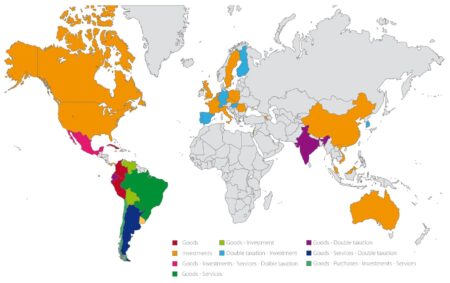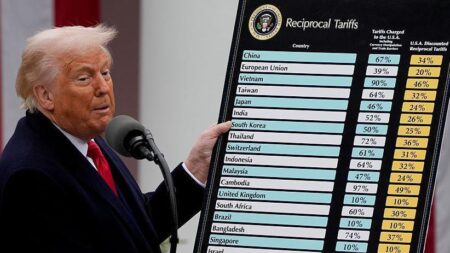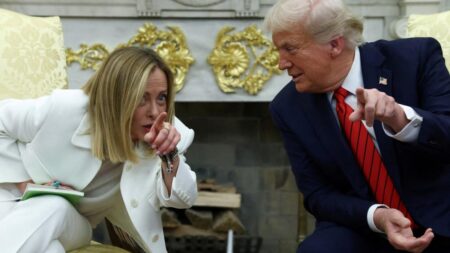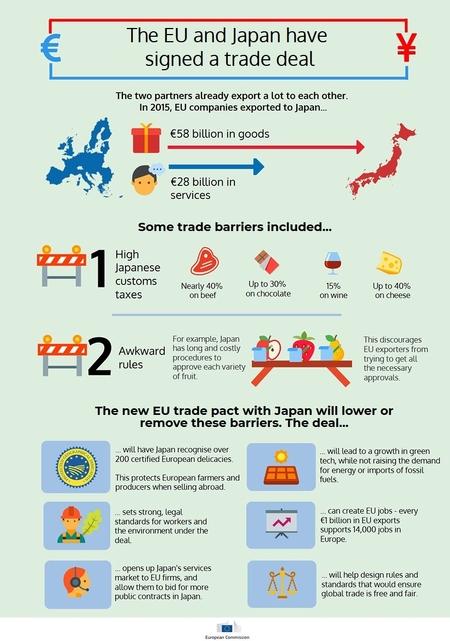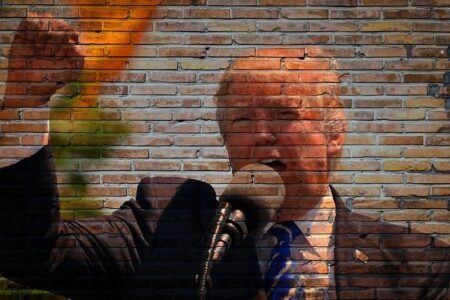Russia’s Deputy Foreign Minister Ushakov emphasized that Moscow remains unwaveringly committed to all existing agreements regarding Alaska, standing strong regardless of any policy shifts suggested during former President Trump’s administration, officials revealed in a recent update
Browsing: trade deals
Former President Donald Trump is preparing to cut tariffs dramatically and strike new trade deals, all designed to lower prices for consumers and spark a surge in economic growth. This ambitious move signals a major shake-up in U.S. trade policy, Bloomberg reports
Brazil is gearing up to revamp its trade agreements with Mexico, aiming to ignite sector-specific collaboration and deepen economic connections, Reuters reports. This strategic effort is designed to supercharge bilateral trade and investment between the two nations
President Trump intensifies his drive for fresh trade agreements amid rising concerns that tariffs could disrupt the global economy. Stay with Yahoo Finance for the latest updates on unfolding negotiations and market reactions
In a significant meeting at the White House, former President Donald Trump and Italian Prime Minister Giorgia Meloni came together to tackle the pressing issues surrounding trade agreements amidst growing tariff uncertainties. Both leaders passionately underscored the importance of collaboration, aiming to strengthen the economic bonds that unite the U.S. and Italy.
Bessent has identified Japan, the U.K., Australia, and South Korea as key priorities for future trade agreements, aiming to strengthen economic ties and enhance market access. This strategic focus signals a commitment to expanding international trade relations.
Brazil aims to enhance its international presence by engaging in talks with the United States, while simultaneously pursuing expanded trade deals with other nations, a government official stated. This strategy underscores Brazil’s intent to boost economic growth.
France has signed multiple agreements to boost Egypt’s economy amid a turbulent regional climate. The deals aim to strengthen economic ties and support crucial sectors, reflecting France’s commitment to stability and cooperation in the Middle East.
Amid escalating tensions in the US-China trade war, negotiations over a potential deal for TikTok have stalled, leaving the future of the popular social media app uncertain. Insiders suggest geopolitical factors could heavily influence the outcome.
The Australia Institute’s recent analysis of the Australia-U.S. Free Trade Agreement (AUSFTA) reveals growing concerns over its impact on the Australian economy. Initially criticized as a bad deal, new data suggests its drawbacks have intensified, prompting calls for reform.
In a surprising pivot, former President Trump has shifted his focus to tariffs and trade agreements concerning Russia and Ukraine. This move signals a potential recalibration of U.S. foreign policy, emphasizing economic strategies amidst ongoing geopolitical tensions.



